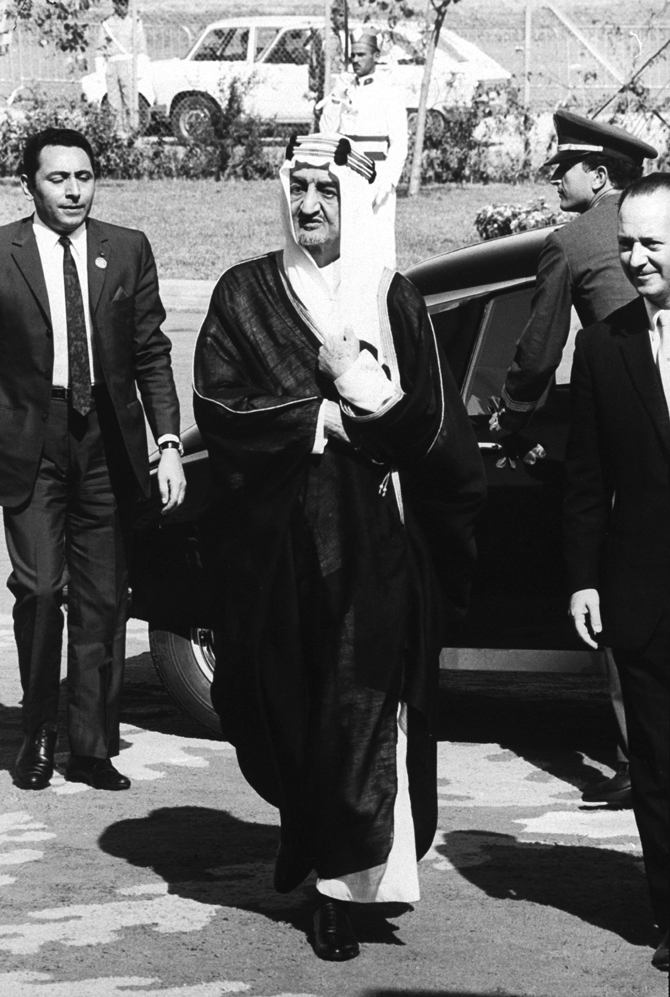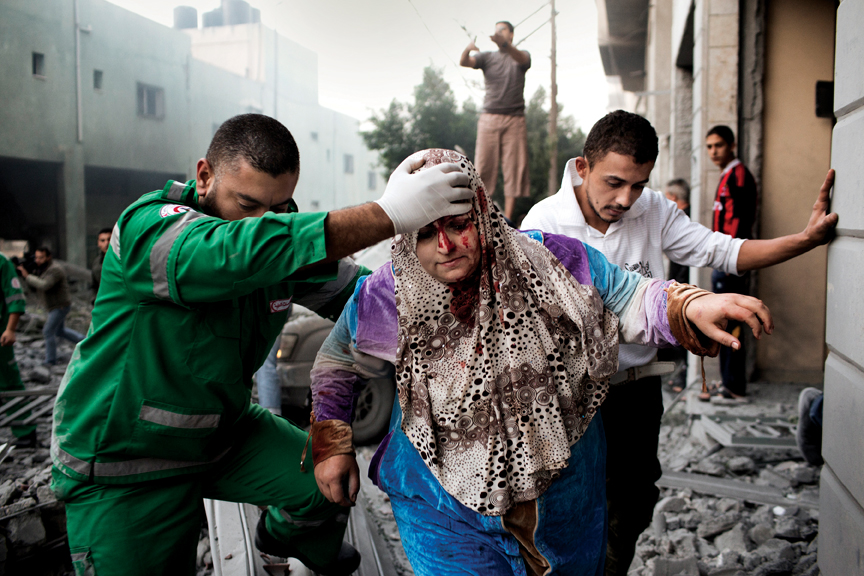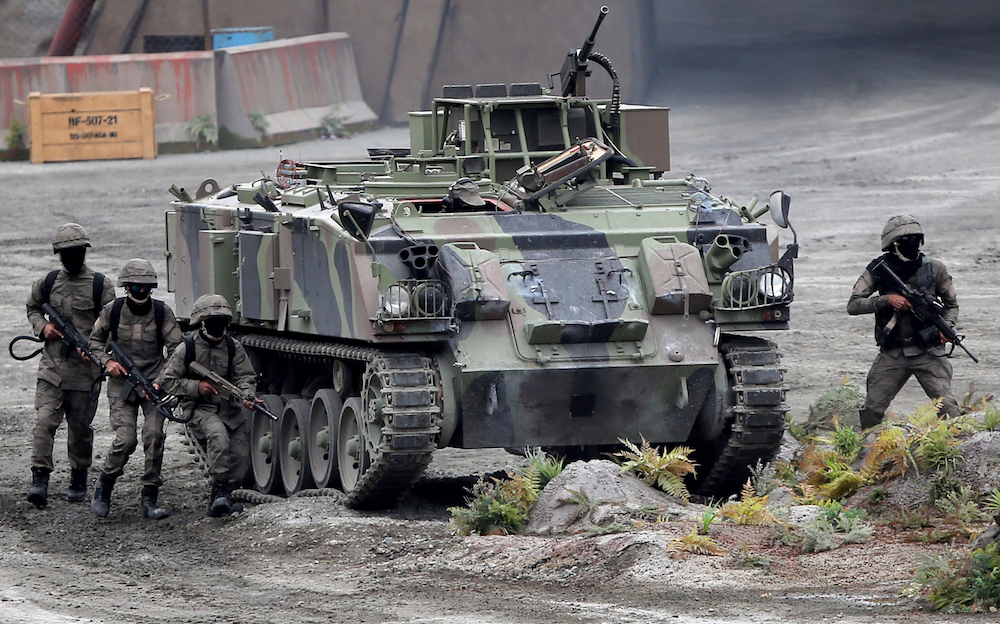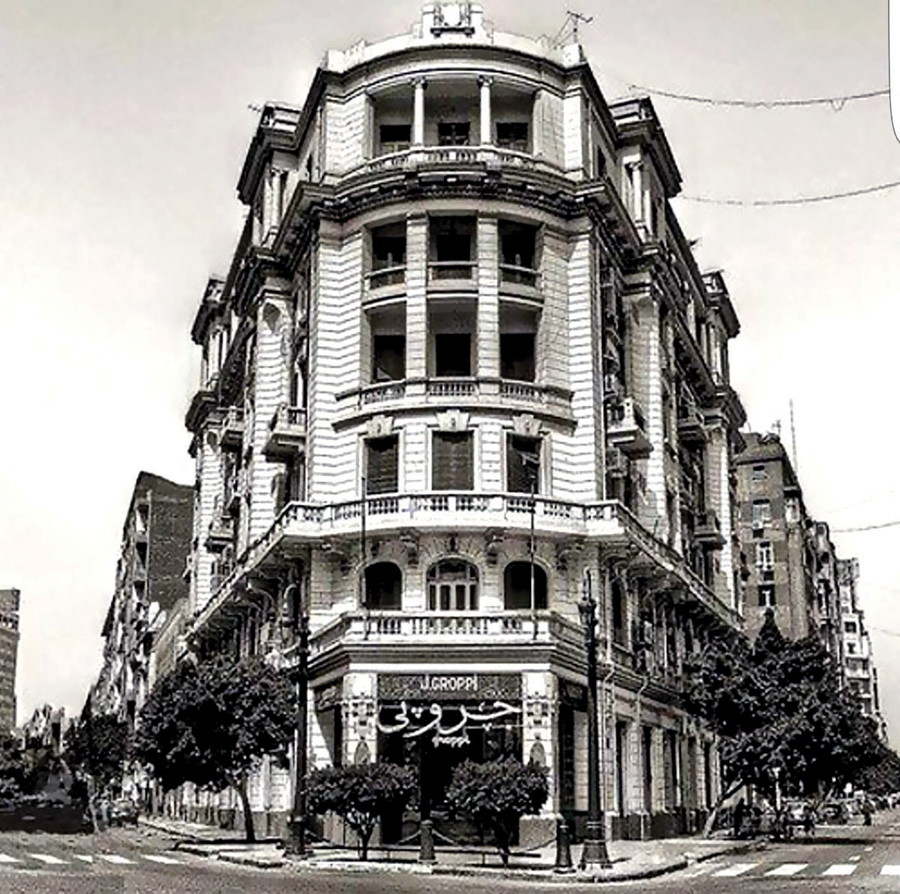A look back at 50 years of OIC as it meets in Makkah for Islamic Summit
JEDDAH: From defending Palestinian rights to taking a unified stand on threats against member states, the Organization of Islamic Cooperation (OIC) — the world’s second-largest inter-governmental body after the UN — has been making a difference in the Muslim world for the last 50 years.
The Islamic Summit in Makkah on Friday will be the organization’s 14th ordinary summit, and will be attended by kings and heads of state and government of the OIC’s 57 member countries.
The OIC first met a month after an arson attack inside Al-Aqsa Mosque in Jerusalem on Aug. 21, 1969.
An Australian tourist had set fire to a structure in the main Al-Qibly Mosque, destroying the 800-year-old pulpit of Saladin.
Reacting to the incident, representatives from 24 Islamic states gathered in Rabat, Morocco, from Sept. 22 to 25 for the first Islamic Summit, marking the birth of the OIC.

The next year, the first ever meeting of the Islamic Conference of Foreign Ministers (ICFM) was convened in Jeddah, and a decision was taken to establish a permanent secretariat in the Saudi city, headed by the OIC’s secretary-general.
The summit in Rabat was attended by representatives of the Palestine Liberation Organization (PLO) with observer status.
The attendees pledged their adherence to the UN Charter and condemned Israel for the Al-Aqsa arson attack.
The second Islamic Summit was convened in February 1974 in Lahore, Pakistan, after a gap of five years.
Representatives from nearly 35 countries attended, proclaiming that “the solidarity of the Islamic peoples is based not on hostility towards any other human communities nor on distinctions of race and culture.”
The Lahore gathering called on OIC member states to sever all relations with Israel in favor of Islamic solidarity.
Seven years later, in January 1981, Saudi Arabia hosted the third Islamic Summit, known as the “Palestine and Al-Quds Al-Sharif Session,” from which Iran and Libya stayed away.
The final declaration read: “All Muslims form one nation of moderation, rejecting alignment to any and all blocs and ideologies, steadfastly refusing to surrender to divisive influences or to conflicts of interests.”
Convened against the backdrop of the Soviet invasion of Afghanistan, the summit in Jeddah expressed its deep concern over Cold War developments, and renewed its call for the withdrawal of all foreign forces from the country.

The delegates decided that OIC member states would contribute at least $3 billion for the creation of an Islamic World Development Program.
The Saudi crown prince at the time, Prince Fahd bin Abdul Aziz, declared a grant of $1 billion by the Kingdom for its implementation.
In January 1984, Morocco hosted the fourth Islamic Summit in Casablanca at the invitation of King Hassan II, with representatives from 42 member states and international organizations, notably the UN and Arab League, in attendance.
The summit reaffirmed its commitment to the principles on which a solution to the Israeli-Arab conflict was to be based: Israel’s withdrawal from all Arab territories occupied in 1967, and the restoration of the Palestinians’ national rights, including their right of return and right to self-determination.
Three years later, in January 1987, Kuwait hosted the fifth Islamic Summit. The four-day meeting, attended by 44 member states, condemned the US for its support for Israel. With “Al-Quds Al-Sharif, Concord and Unity” as the theme, Senegal hosted the sixth Islamic Summit in Dakar in December 1991.
In the Dakar declaration, participants reaffirmed their “resolve to face the Israeli occupation of Palestinian and other Arab territories occupied since 1967; as well their determination to continue to reject and oppose the pursuit of Israeli plans and practices.”
The Islamic Summit returned to Casablanca for its seventh session in December 1994. The session, which coincided with the OIC’s 25th anniversary, was attended by 49 member states and international organizations.
At this gathering, delegates pledged to correct the image of Islam, referring to the spirit of “jihad” based on general principles of Shariah law.
The Palestinian issue also featured prominently at the summit, with participants voicing their support for the PLO in its struggle for Palestinian rights.
The delegates condemned Serbia’s aggression against Bosnia-Herzegovina, its non-compliance with UN Security Council resolutions, and its rejection of the Five-Nation Peace Plan.
The eighth session was convened under the patronage of Mohammad Khatami, Iran’s then-president, in December 1997, with “Dignity, Dialogue, Participation” as the theme.
The summit in Tehran was attended by 53 member states and inaugurated by Iran’s Supreme Leader Ali Khamenei.
Large contributions were made by several Gulf countries, with Saudi Arabia alone giving $10 million for OIC activities and institutions.
The ninth Islamic Summit was convened in Doha, Qatar, in November 2000, with the theme “Peace and Development: Al-Aqsa Intifada.”
It was attended by 52 member states, with Bosnia-Herzegovina, the Central African Republic, Ivory Coast and Thailand participating as observers, and Russian President Vladimir Putin taking part in the opening session.
Against the backdrop of the US invasion of Iraq, the 10th Islamic Summit was convened in Putrajaya, Malaysia, in October 2003.

Delegates strongly condemned threats by the Israeli government against then-Palestinian President Yasser Arafat, and appealed to the international community to force Israel to respect UN resolutions.
The summit strongly condemned the terrorist bombing of the Jordanian and Turkish embassies and the UN headquarters in Baghdad, and of holy sites in the Iraqi city of Najaf.
It also rejected “unfounded campaigns and allegations against Saudi Arabia,” and called for their end.
The summit expressed solidarity with, and support for, the Kingdom, and its backing of all Saudi efforts to fight terrorism.
The Islamic Summit returned to Dakar in December 2005 for its 11th session, where leaders pledged that their governments would do whatever it would take to make contributions amounting to $10 billion to the Islamic Solidarity Fund for Development, which was established under the aegis of the Islamic Development Bank (IDB).
In 2013, the 12th Islamic Summit was convened in Cairo, Egypt, with the participation of 56 member states along with a number of international and regional organizations.
Participants condemned the Israeli assault of November 2012 on the Gaza Strip, and the policy of collectively punishing the Palestinian people, particularly Israel’s blockade of the enclave.
The last Islamic Summit before the upcoming one in Makkah was held in April 2016 in Istanbul, Turkey.
There, delegates reaffirmed their commitment to the OIC’s central purpose: The Palestinian cause and the preservation of Haram Al-Sharif as an Islamic site.
They expressed concern for Muslim refugees who had to leave their home countries, notably Syria, due to armed conflicts and oppression. They also decried the rise of xenophobia and Islamophobia in Western countries.

Pakistan pins high hopes on OIC summitOIC Islamic summit in Saudi Arabia to be held during last 10 days of Ramadan



